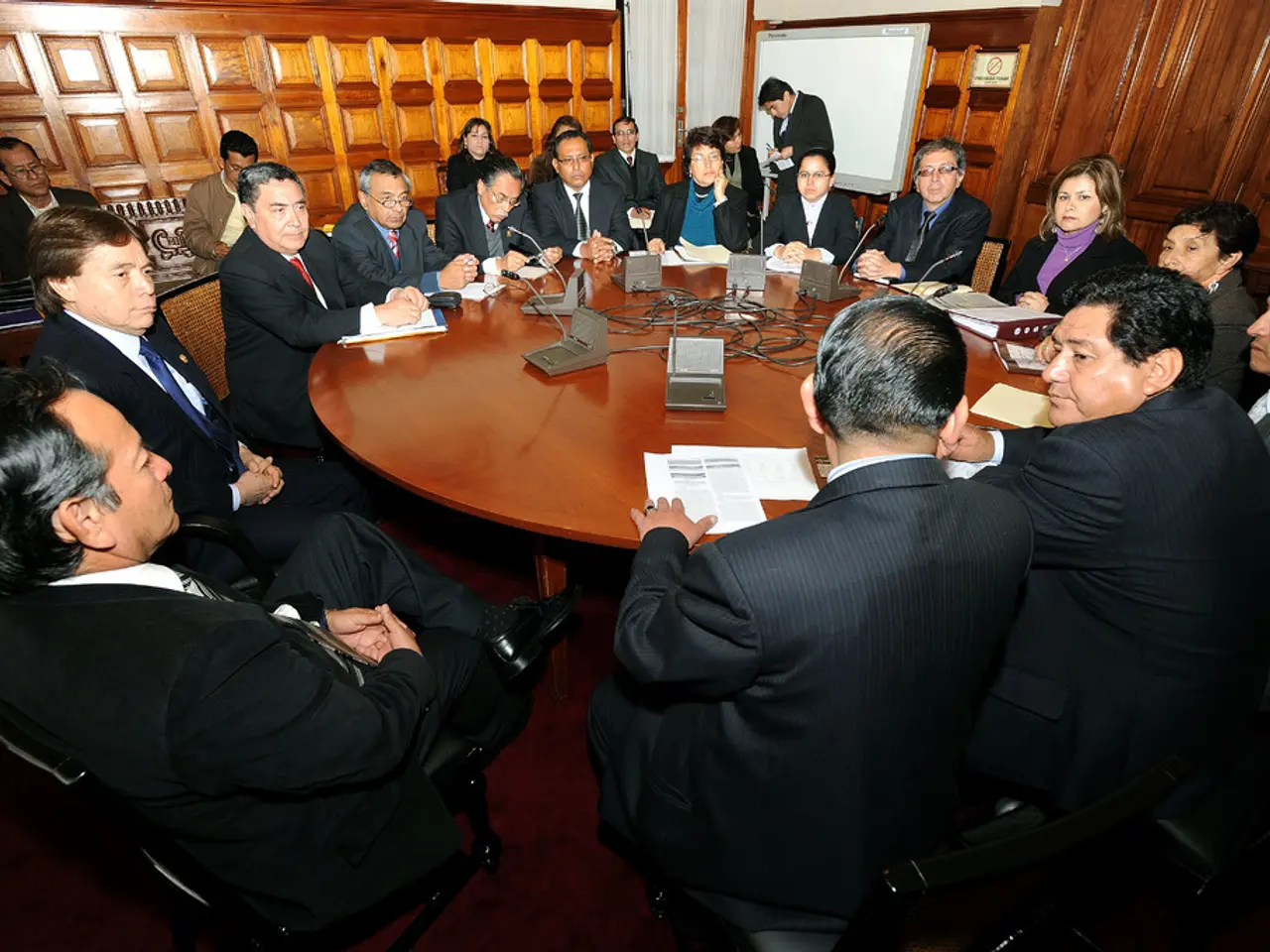Strategies for Organizing an Effective Team-Building Workshop
In the ever-shifting landscape of teamwork, a solid team is a game-changer. A thoughtfully planned team-building workshop isn't just a one-off event - it's a strategic investment in the morale, camaraderie, and synergy of your team. Drawing on my experiences in leadership, I've seen firsthand the profound impact of a dedicated, goal-oriented approach.
Getting Your Ducks in a Row: Setting Clear Objectives
Before jumping into the logistics, it's essential to clarify your goals. What's our aim? Are we focusing on communication, problem-solving, relationship-building, or fostering innovation? Clarity in goals sets the foundation for the entire workshop. After all, a poorly defined goal is like setting off on a journey without a map - directionless and inefficient.
A clear objective not only provides direction but ensures that every activity and discussion during the workshop aligns with the overall mission. Here are some categories of goals to consider:1. Communication Improvement2. Problem-Solving Skills3. Relationship Building4. Innovation and Creativity
To boost effectiveness, aim for objectives that are specific, measurable, and aligned with your broader organizational goals. Involve your team in setting these objectives for a stronger sense of ownership and engagement.
Get to Know 'Em: Understanding Your Team
Getting to know your team is more than just a preliminary step; it's an essential investment in your workshop's success. Each team member brings a unique set of skills, strengths, and perspectives to the table. Understanding these nuances allows you to tailor experiences that truly resonate and drive engagement.
To dig deep, consider using a pre-workshop survey, brief one-on-one meetings, and encouraging self-assessment to gather insights about your team's strengths, passions, and areas for improvement. With this information, create activities that play to your team's strengths while addressing their growth areas. Don't forget to foster an inclusive atmosphere where every team member feels heard and valued.
Pick the Right Spot: Finding the Right Location
The environment you choose can significantly influence your workshop's success. From breaking the ice to brainstorming sessions, the right location sets the stage for productive, engaging activities. When selecting a location, consider accessibility, capacity, amenities, and tailoring the location to the workshop's purpose. Look for flexibility and adaptability to accommodate any last-minute changes.
Design Engaging Activities: Crafting Impactful Experiences
Keep your team engaged and motivated with well-crafted activities. Use icebreakers, team challenges, problem-solving games, collaborative activities, communication drills, and outdoor adventures to create a dynamic, purpose-driven environment. Integrate reflection segments to ensure that learning is consolidated and applied to real-world scenarios.
Be Flexible: Creating a Flexible Agenda
Structure is essential, but so is adaptability. Balance a well-organized plan with the freedom to pivot and adjust as needed. With a detailed yet adaptable agenda, accommodate real-time adjustments, build in buffer times, encourage spontaneity, and stay focused on your objectives.
Gather Feedback: Continuous Improvement
Leadership and personal growth is fueled by continuous improvement. Hear what your team has to say about their workshop experience by employing a mix of methodologies such as surveys, one-on-one discussions, feedback forms, and focus groups. Use the insights to refine future workshops, demonstrate your commitment to continuous growth, and build trust with your team.
In conclusion, a team-building workshop isn't just an event - it's an opportunity to transform your team into a cohesive, dynamic, high-performing unit. Embrace this challenge, tailor your approach to your team's needs, foster an environment of growth, and watch your team shine. Happy team-building!
- In the ever-evolving landscape of teamwork, fostering collaboration and teamwork significantly influences a team's success, acting as a game-changer.
- When planning a team-building workshop, it is crucial to set clear objectives, ensuring strategic thinking and alignment with organizational goals.
- Objectives should be specific, measurable, and tailored to focus on areas such as communication, problem-solving, relationship-building, or innovation and creativity.
- To maximize effectiveness, involve your team in the objective-setting process, enhancing their sense of ownership and engagement.
- Understanding each team member's unique skills, strengths, and perspectives is key to creating activities that resonate and drive engagement.
- The location chosen for the workshop should offer flexibility, adaptability, and a suitable environment that can accommodate various activities, from icebreakers to problem-solving sessions, to foster a productive and engaging experience.
- To maintain a high-performing team, encourage a lifestyle that promotes continuous learning and improvement, applying principles of education-and-self-development to the workshop.
- Travel can broaden horizons and foster team bonding, while incorporating elements of fashion-and-beauty, food-and-drink, and home-and-garden into team-building activities can provide a unique and memorable experience.





